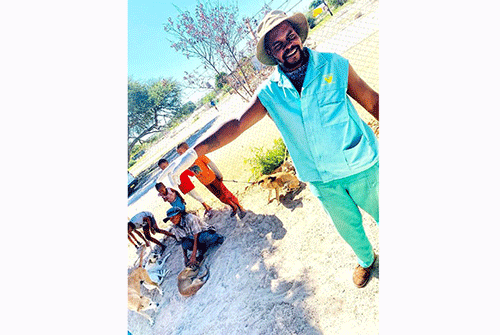Zebaldt Ngaruka
The Epukiro state veterinary office, under the auspices of Dr Seuakouje Veii, together with Dr Lindsay Scott from Harnas, hosted a rabies’ awareness and vaccination campaign yesterday at Okatuuo village in the Omaheke region.
This was part of World Rabies Day commemoration.
28 September is marked as World Rabies Day, and is celebrated annually to raise awareness about rabies prevention, and to highlight progress in defeating the horrifying disease.
Rabies is a viral disease that affects the central nervous system of mammals such as dogs, cats and foxes.
The virus is particularly present in the saliva and brain of infected animals, and is transmitted by bites or scratches.
The theme for this year is ‘Breaking Rabies Boundaries’.
It was chosen to highlight the need for progress, and moving beyond the status quo.
The theme highlights the need for cross-sectoral and cross-border collaborations, bringing together governments, health organisations, veterinary services and communities.
Veii urged the Epukiro community to bring all pets above three months of age for vaccination and deworming for free in the Okatuuo settlement.
“All farmers in surrounding areas are also welcome to present their pets on the day,” she said.
Veii added that vaccinating pets against rabies is important, as it not only attains a healthy population of pets, but also eliminates do-mediated human rabies by tackling the disease at its sources (the infected dog).
This disrupts the rabies ‘transmission cycle.
“An unvaccinated population of animals or pets against rabies disease has a greater chance of being infected with the virus and, in turn, poses a high risk of transmitting the disease to humans, considering the close association humans have with their pets or animals,” she said.
The state veterinarian then called on the farmers to make sure their pets are vaccinated.
“There is no treatment for rabies disease. Thus, vaccinating your animals, especially pets, against rabies is the best thing to do,” she stated.
Veii also advised farmers in other areas to visit their nearest veterinary office, as the vaccination of pets against rabies is done for free.
She urged people to be vigilant and avoid dog bites, and to seek medical attention when they are exposed.
Rabies kills tens of thousands of people worldwide each year.
Approximately 99% acquired from the bite of an infected dog.



